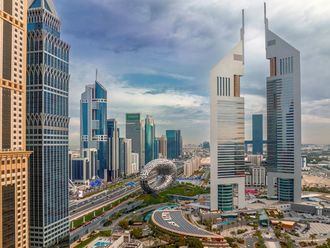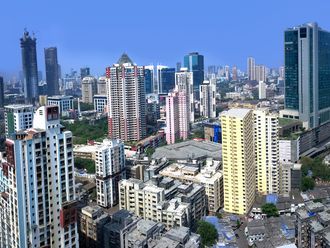Something weird is going on with the global economy. It’s been going on since at least 2007. Economic growth has been slow, financial markets have been volatile and economic policymakers have often been at a loss.
We tend to focus on the problem of the moment — the sub-prime crisis, the euro crisis, the China slowdown, the oil bust. But surely these events are connected. What threads link them?
I’ve been collecting possible storylines for a while now. I make no claim that the eight here are an exhaustive list. Together, though, they paint an interesting picture, if not a clear one.
* Global Financial Crisis and Aftermath: There was an international bad-debt crisis that started in 2007 and really got interesting in 2008, and the global economy is still dealing with its aftermath. Carmen Reinhart and Kenneth Rogoff tell the basic story in “This Time Is Different: Eight Centuries of Financial Folly”: These debt crises happen from time to time, and they always leave an economic hangover.
This crisis was especially large, so the hangover has been especially long and painful.
* Great Deviation: Economist John Taylor defined this in a 2011 paper as “the recent period during which macroeconomic policy became more interventionist, less rules based, and less predictable”. The deviations from good policy started in 2003 with the Federal Reserve’s decision to keep interest rates lower than dictated by the monetary guideline known as the Taylor rule (yes, same Taylor), and have continued through various bailouts and monetary easings and fiscal stimuli in the US and Europe.
Taylor’s specific diagnosis of policy failure has been much disputed, but the sentiment that government and central bank errors have let us down is widely shared.
* End of the American Century: Since the 1940s the US has been the dominant force in the global economy and the dollar the de facto global currency. In recent years this dominance has waned, but no other country or global institution is ready to take over. The result is continuing uncertainty and unrest in geopolitics, economics and financial markets. And there’s no sign of that ending anytime soon.
* End of Inflation: Since the 1200s, historian David Hackett Fischer wrote in “The Great Wave: Price Revolutions and the Rhythm of History”, the world has seen four long periods of rising prices. The first three were followed by economic and political turmoil and then a long period of price stability.
The fourth, which in Fischer’s telling began in the late 1890s and was still going when he published his book in 1996, may now be in its death throes. If history is any guide, those could go on for a while, and spark multiple financial crises.
Even if you don’t believe that history moves in long waves, it’s clear that after the Great Inflation of the 1960s and 1970s and the Great Disinflation (another Taylor phrase, meaning a long period of declining but still above-zero inflation) that followed, central bankers are at something of a loss as deflation spreads.
* Great Stagnation: Economist Tyler Cowen was referring specifically to the US when he popularised this term, but it’s a good name for the more global phenomenon of a slowdown in technology-driven productivity growth and a waning of the conditions (big untapped export markets abroad, big untapped labour supply at home) that allowed developing countries to make great economic leaps forward in recent decades.
* Technological Revolution: On the other hand, maybe the productivity slowdown is just the prelude to a boom. Major new technologies take time to make their impact felt, technology scholar Carlota Perez argued in her book “Technological Revolutions and Financial Capital: The Dynamics of Bubbles and Golden Ages”.
With each past technological revolution there have been missteps, uncertainty and serious financial turmoil before a “golden age” in which businesses, consumers and governments figure out how to take full advantage of the new possibilities. Perez dates what she calls the information and communications technology revolution to 1971, and has speculated that the 2007-08 financial crisis might mark the beginning of a transition to a new golden age. She doesn’t say how long that transition will take, though.
* Population Plateau: In the latest issue of Foreign Affairs, Morgan Stanley’s Ruchir Sharma argues that declining fertility rates around the world have put a major damper on economic growth. There was a time when many people worried that unchecked population growth would destroy the planet, so in most ways the population slowdown is a really good thing.
But modern capitalism arose and thrived during a long era (starting around 1350) of continuous population growth. If the global population is nearing a plateau, capitalism will have to adjust.
* Peak Resource Use: The world may be nearing a decoupling of economic growth and natural-resource consumption, the Breakthrough Institute, an environmental think tank, argued in a report this past fall. Per capita use of wood, water and farmland is already falling worldwide, and while per capita carbon emissions are still rising globally, they’re flat in the developed world.
Together with the population’s plateauing, this decoupling could bring a new era of sustainable, environment-friendly growth. As the McKinsey Global Institute proposed in a recent report, global trade may also be evolving away from flows of physical goods and toward flows of information.
These shifts seem necessary and welcome for the world as a whole. But if your income or your country’s economy depends on selling commodities or manufactured goods that the world needs less of, the transition won’t be easy.
Put these all together, and what do you get? A Great Muddle, perhaps. Some stories overlap.
At least two of them contradict each other. They don’t all add up to any kind of consistent narrative. I’m temperamentally most sympathetic to the last three, though, and those do add up to something.
They describe a world economy that’s going through a painful but necessary transition from the industrial age to something that might be much better. We’re in the pupal stage, basically. So how about we call it the Great Metamorphosis?
— Washington Post












